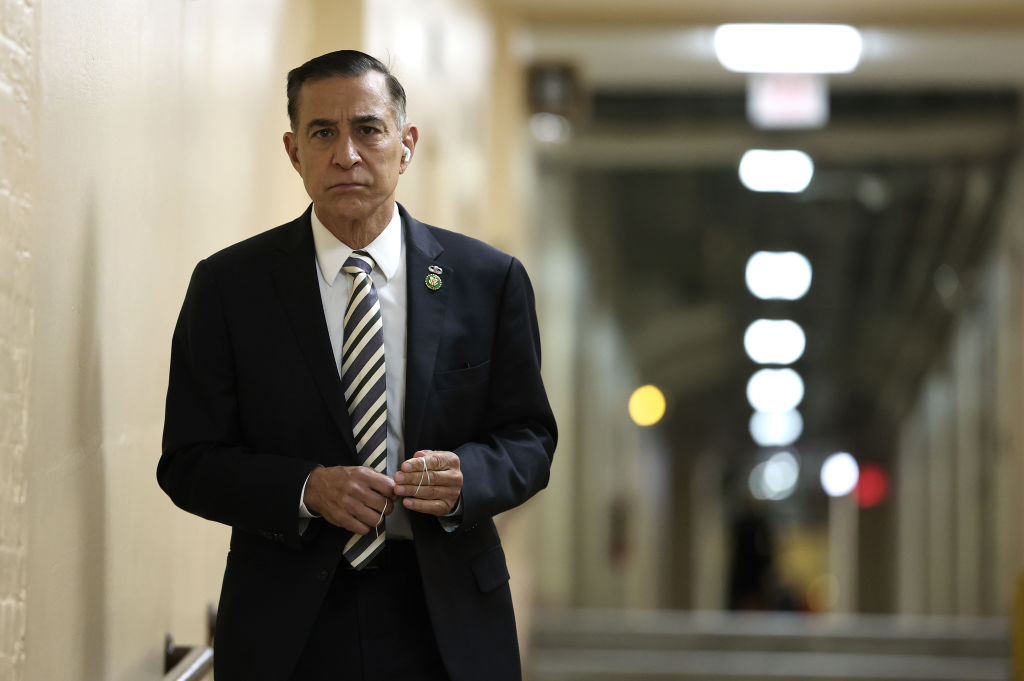- Sunday, April 20, 2025
Issa, who represents California, emphasised the potential for India to serve as an alternative manufacturing hub to China, producing goods at comparable costs.

By: Shubham Ghosh
DARRELL Issa, a prominent American lawmaker, has said that the perceived “threat” posed by China presents an opportunity for the US and India to forge robust agreements, potentially including a genuine Free Trade Agreement (FTA).
Issa, a 70-year -old Republican Congressman from California, conveyed this perspective during a dialogue with Aparna Pande, a Research Fellow specialising in India and South Asia at the Hudson Institute in Washington DC. He acknowledged that the current dynamics of the India-US relationship are notably influenced by concerns regarding China. However, he views this as an opening to address what has been overlooked in the past.
Issa, who represents California, emphasised the potential for India to serve as an alternative manufacturing hub to China, producing goods at comparable costs. This shift could facilitate India’s transition from dirty fuel to cleaner alternatives. To realise this potential, Issa stressed the necessity for both countries to establish robust agreements, including a genuine FTA, fostering a partnership where they prioritise each other. He expressed optimism about progress in this direction but acknowledged that there is still considerable work to be done. Issa shared these views during the event titled ‘A Conversation with Rep. Darrell Issa on US–South Asia Relations.’
Read: US issued record 1.4 million visas to Indians in 2023

“Who are the people running some of our largest and most successful companies in the United States? Who are the innovators in the United States? Who dominates our universities? Answers quite frankly — Indian exchange students, who want to remain here and Chinese students, who China wants to take back to China! We can harness those together. We already have,” he said.
Read: Utah, US desert state, partners with luxury, niche tour operators to attract Indian tourists
Pointing out that he is someone who’s been working on immigration reform for 20 years, and has seen that the No.1 challenge for Indian H-1B and other temporary visa programmes (for people) who want to become permanent residents and citizens, the Congressman acknowledged that the backlog is huge.
“The fact is that the amount of Indian investors who would like to expand their L visas like to bring greater amounts over is massive. These are people who, yes, they want to have a nexus to the country of India. But they also want to have a real foothold in the United States,” he said.
Advocating the FTA, Issa said, “India and the US cannot be partners only against something and expect it to last. Britain, Australia, New Zealand, Canada, and for that matter, the NATO alliance … all have common sides. But they also have ever-growing free trade agreements, ever-growing mutual agreements to share technology. They also have companies which are headquartered in one and substantially doing business in the other.
“The same has to be done for India. Are we equal partners? No, we’re not. We have more money. You have more people. We have more people who want to be lawyers. You have more people who want to be engineers,” he said.
The Congressman observed how the Indian and the US societies “share many of the same values, but approach the work ethic and the education ethic in a substantially different way” in which the shortages in the US are disproportionately able to be filled in partnership with India.
“I don’t believe in one world. I believe that the world is made up of partnerships. And a partner of one to another is bilateral. But when a partner of one has five other partners and invites them into that relationship, then you build a multilateral relationship,” he said.
Responding to a question on the upcoming elections in Pakistan, Issa said the country does not have a free and fair election. “Pakistan does not have free and fair elections. Pakistan, at best, has elections in which somebody can win in spite of the incumbent system pushing against them. But that means the only time there’s a change in power in Pakistan is when it gets really bad when the people are so adamantly opposed, that in spite of all that, there is a change.
“When there is it usually doesn’t end up being because you still have the corruption that is endemic in there the absence of rule of law and foremost, you have the military, and no government can long remain independent when at the end of the day, your ability to be independent is kept in the hands of the military,” he said.
“If you displease them, one way or the other, you’ll be gone.”
(With PTI inputs)